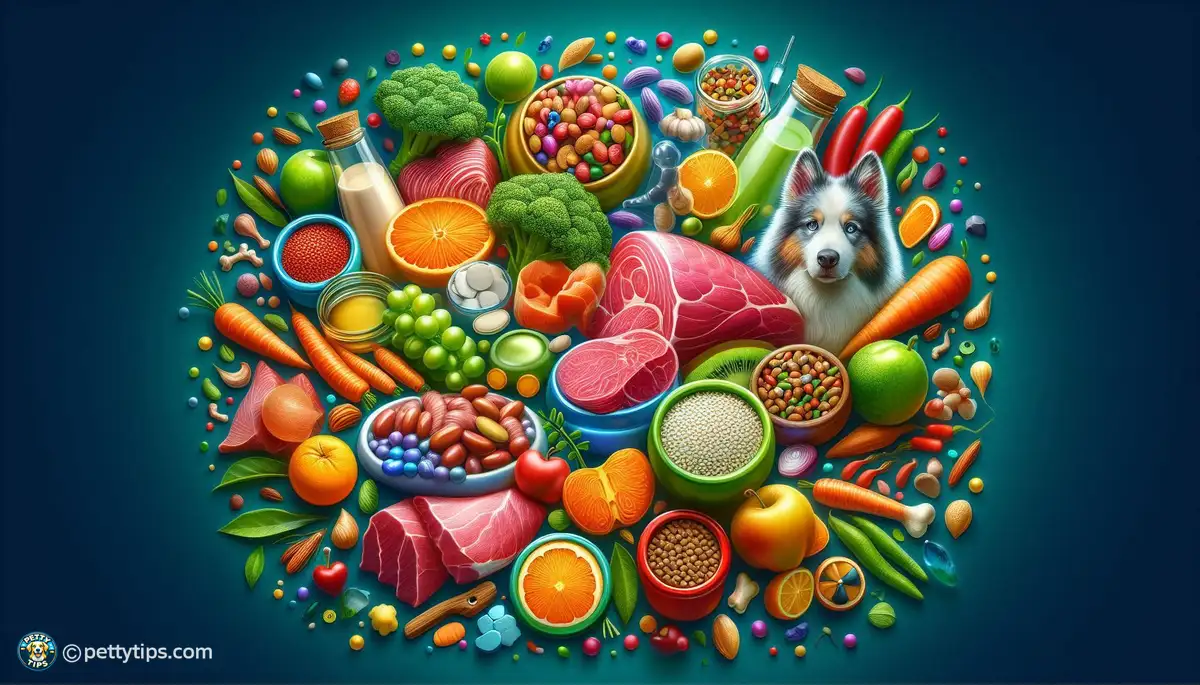
A Beginners Guide to Transitioning Your Pet to a Grain-Free Diet
Guay Matthew - Sep 10, 2024 - 5 min read


As our beloved pets enter their golden years, their nutritional needs undergo significant changes. Just like humans, senior pets experience various physiological changes, including slower metabolism, decreased organ function, and changes in body composition. These changes necessitate adjustments in their diet to ensure they receive the essential nutrients required to maintain optimal health and vitality. Understanding these nutritional needs is crucial for providing our senior pets with the care and support they deserve.
Nutritional deficiencies can exacerbate age-related health issues, such as arthritis, cognitive decline, and decreased immune function. Therefore, it's essential to tailor our senior pets' diets to address their specific requirements. Senior pets may require diets with different nutrient compositions compared to their younger counterparts, emphasizing certain nutrients to support joint health, cognitive function, and overall well-being.
Protein
Senior pets with kidney issues may benefit from a protein-restricted diet, but it's crucial to consult with a veterinarian to determine the appropriate protein levels for individual pets.
omega-3 fatty acids
Adding omega-3 fatty acids to your senior pet's diet can also support cognitive function and improve skin and coat health, contributing to an overall higher quality of life.
Maintaining digestive health becomes increasingly important as pets age. Senior pets may experience issues such as constipation or gastrointestinal sensitivity, necessitating dietary modifications to promote optimal digestion. Including adequate fiber in their diet can help regulate bowel movements and prevent digestive discomfort.
Fiber-rich ingredients such as vegetables, fruits, and whole grains can support gastrointestinal health by promoting regularity and providing prebiotic benefits to nourish beneficial gut bacteria. Additionally, probiotics supplements can be beneficial for senior pets with digestive issues, helping to restore a healthy balance of gut flora and improve nutrient absorption.
Senior pets are more susceptible to dehydration due to reduced kidney function and an increased risk of urinary tract issues. Ensuring they have access to fresh, clean water at all times is essential for maintaining hydration levels and supporting overall health.
Incorporating moisture-rich foods such as wet or canned food into their diet can also contribute to their hydration needs. These foods not only provide essential nutrients but also help increase water intake, reducing the risk of dehydration and supporting kidney function.
weight management is crucial for senior pets to prevent obesity-related health issues and maintain optimal mobility and quality of life. As pets age, their metabolism may slow down, making them more prone to weight gain if their calorie intake is not adjusted accordingly.
Implementing portion control and feeding senior-specific diets formulated to support healthy weight management can help prevent excessive weight gain. These diets are typically lower in calories and fat while still providing essential nutrients to support overall health.
Encouraging regular exercise and physical activity is essential for managing weight and maintaining muscle mass and joint health in senior pets. While their activity levels may naturally decrease with age, engaging in activities such as gentle walks, low-impact exercises, and interactive play sessions can help keep them active and mobile.
Regular exercise not only helps control weight but also promotes mental stimulation and overall well-being. It's essential to tailor the intensity and duration of exercise to your pet's individual needs and limitations, taking into account any underlying health conditions or mobility issues.
As pets age, they may be more prone to joint stiffness, arthritis, and other musculoskeletal issues that can impact mobility and quality of life. Supplementing their diet with glucosamine and chondroitin can help support joint health and reduce inflammation, alleviating discomfort associated with age-related joint conditions.
These supplements work by providing the building blocks necessary for cartilage repair and maintenance, helping to improve joint function and mobility over time. Incorporating foods rich in these nutrients, such as shellfish and bone broth, or using veterinarian-recommended supplements can help support your senior pet's joint health as they age.
Maintaining a healthy weight and engaging in regular exercise are also essential components of joint health for senior pets. Excess weight puts additional strain on the joints, exacerbating discomfort and reducing mobility. By managing their weight through diet and exercise, you can help alleviate pressure on their joints and improve their overall comfort and mobility.
Encouraging low-impact exercises such as swimming or gentle stretching can help strengthen muscles, improve flexibility, and support joint function without putting undue stress on their joints. Additionally, providing comfortable bedding and ensuring their environment is safe and accessible can further support their mobility and quality of life.